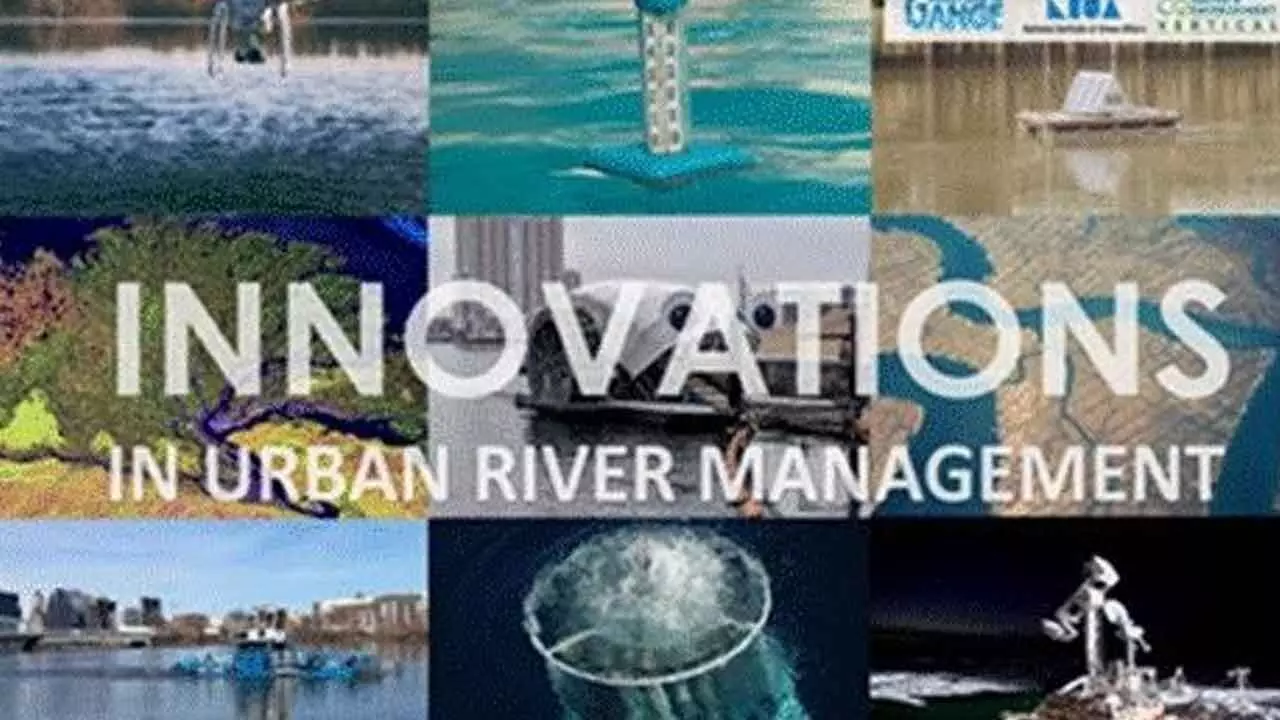Need To Integrate River-Sensitive Urban Planning Among Cities
The pioneering ‘River Cities Alliance’ boasts of a membership of 145 cities
Need To Integrate River-Sensitive Urban Planning Among Cities

To facilitate knowledge exchange and promote best practices, key events such as DHARA, a basin-level RCA meet, and exposure visits to Udaipur and Hyderabad have been scheduled. Enhancing governance capacity in river-sensitive urban planning is another priority
In a significant step towards sustainable urban river rejuvenation, the National Mission for Clean Ganga (NMCG) has approved an annual master plan for the River Cities Alliance (RCA), charting out a vibrant and action-oriented roadmap of initiatives to be undertaken across the year.
The plan encompasses a series of capacity-building programs, knowledge exchange platforms, development of technical tools, expert guidance, and thematic case studies, all focused on integrating river-sensitive urban planning within India's growing cities.
Launched in 2021, the RCA is a pioneering initiative, led by the Ministry of Jal Shakti and the Ministry of Housing and Urban Affairs. With a current membership of 145 cities, the Alliance promotes a comprehensive approach to urban river management—one that strengthens institutional capacity, fosters inter-city collaboration within river basins, and supports the creation of Urban River Management Plans (URMPs).
This year's approved plan is tailored to further operationalize these goals by rolling out a range of strategic interventions.
A major focus will now be on the promotion of river considerations within city master plans through the organisation of River-Sensitive Master Planning (RSMP) training programs across states. Simultaneously, to support the formulation of Urban River Management Plans (URMPs), the NMCG will conduct training sessions including onboarding programs specifically for RCA cities in Tamil Nadu, with further sessions planned for additional states. The URMP framework, launched in 2020 by National Institute of Urban Affairs (NIUA) and NMCG, represents a first-of-its-kind approach to ensure that environmental, economic, and social dimensions are considered in the urban management of rivers.
Five cities—Kanpur, Ayodhya, Chhatrapati Sambhaji Nagar, Moradabad, and Bareilly—have already developed their URMPs, setting the benchmark for other urban centres. Notably, Chhatrapati Sambhaji Nagar’s Kham River Restoration Mission is globally recognised by the World Resources Institute’s Ross Center Prize for Cities, underlining the transformative potential of this initiative. The year ahead will also see the development of 25 more URMPs as part of the first phase of a larger mission to create 60 such plans across India over the next two to three years. Supported by the World Bank, this initiative marks a bold step in deepening river-sensitive urban governance. Steering Committees have already been constituted in states like Uttarakhand, Uttar Pradesh, Bihar, and West Bengal to facilitate plan formulation and guide implementation.
The NMCG is also steering the development of a URMP for the national capital. This initiative seeks to redefine Delhi’s rivers as vital ecosystems and not just water channels, paving the way for sustainable and inclusive urban river management in alignment with national environmental priorities.
In an effort to foster basin-linked urban thinking, NMCG will issue an advisory on “Effective vertical coordination among basin, district and city-level river management plans.”
Complementing this, a variety of tailored knowledge products will be developed, alongside a feedback mechanism to identify knowledge gaps faced by member cities. Technical support will be strengthened through the formation of Thematic Expert Groups, which will also guide eco-friendly riverfront development initiatives.
To facilitate knowledge exchange and promote best practices, key events such as DHARA, a basin-level RCA meet, and exposure visits to Udaipur and Hyderabad have been scheduled. Enhancing governance capacity in river-sensitive urban planning is another priority, with formal training programs to be rolled out in Urban Local Bodies (ULBs) of member cities.
Additionally, RCA will focus on documenting successful on-ground practices through weekly case studies every Monday, showcasing urban river rejuvenation efforts. Public awareness campaigns and sensitisation programs will be launched to promote river-conscious behaviour among citizens. Financial advisory services will be provided to support cities in mobilising resources for river-related projects.

